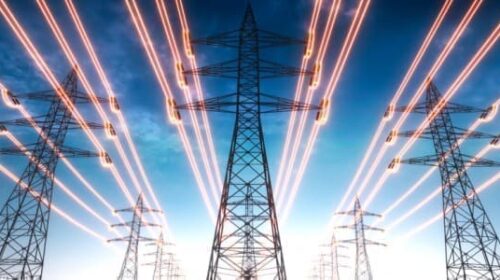With the government set to burden consumers with Rs893 billion electricity tariff rebasing during the current fiscal year, on top of fuel adjustments in tens of billions of rupees per month, one of the most crucial elements untouched by policymakers remains the high system losses and low recoveries.
Both elements put together entail a revenue shortfall of about Rs750bn. This stems from roughly 17 per cent technical losses and about 10pc short recoveries against billing, where a 1pc loss translates into Rs28bn. Unless this elephant in the room is tamed, the circular debt which is at about Rs2.5 trillion will not go away.
On top of these well-documented shortcomings, there are a lot of inefficiencies some of which have been highlighted by Rafique A Shaikh, the incumbent member of the National Electric Power Regulatory Authority (Nepra), in the latest note on monthly fuel price adjustments.
He has highlighted consistent non-compliance of regulatory orders on governance issues in the power sector by the Central Power Purchasing Agency (CPPA) — the organisation that acts as a market operator on behalf of distribution companies and generation companies in matters relating to tariff approvals and financial settlements among producers and distributors.
The Nepra member has pointed out that the power system operator (National Transmission & Dispatch Company — NTDC) is required by law to report to the market operator (CPPA) and the regulator (Nepra) within 24 hours, the dispatch of generation plants out of merit order along with the reason. The CPPA has to then analyse the financial impact of deviation from merit order and take it up for regulatory review at the time of monthly fuel cost adjustments (FCA). This is not happening despite regulatory orders.
This non-compliance is a major impediment in identifying the weak links and fixing them. Finally, Nepra has now initiated, through a third party, a comprehensive assessment of the system operator for the past three years. While the process to carry out the audit of CPPA is in process, the CPPA is not at liberty to disobey regulatory orders; the failure of CPPA appears to be a deliberate attempt of non-cooperation to fix power sector issues.
As part of the FCA hearing for April 2022, it was noted that the inclusion of power plants in the merit order list on natural gas fuel that was not available for 2-3years was misleading and hence ordered that these should be excluded. This has also not been complied with. Likewise, there are several plants that either have no valid generation license or are not available for operation but are allowed to continue by the CPPA for monthly fuel adjustment.
The FCA for May 2022 involved a financial impact of Rs113bn, an additional burden on consumers. Under the scheme of law, this adjustment should have been done within the first seven days of June 2022 for its recovery within that month. In terms of the time value of money, the delay in the processing of this adjustment ultimately affects the electricity consumers or the taxpayers.
As if that was not enough, the amount claimed on account of the previous adjustment is more than Rs6.5bn. This has not been audited for which period this amount pertained, although apex court judgements and regulatory decisions required that previous claims, if any, be submitted as early as possible.
Another factor with additional financial impact worth billions of rupees per month is the Partial Load Adjustment Charges (PLAC) — Rs4bn for May 2022 for example — with a claim that PLAC was either due to no demand in the system or constraints in the transmission and distribution system although there was massive load shedding in May.
This meant the demand was there and hence the only reason for PLAC was system constraints. More ironically, most of the PLAC was on account of the three most efficient RLNG (regassified liquefied natural gas)power plants with 61pc plus efficiency. The cost, nevertheless, is borne by the consumers.
In the wake of high load demand in the system and ongoing electricity shortfall in the country, these LNG-based plants’ capacity utilisation ranged between 72pc and 87pc although their full utilisation could have minimised load shedding with cheaper fuel on one hand and avoided Rs3.14bn in part-load claims.
On the other hand, Genco-II has been the worst performer for the past many years, causing billions of rupees of losses to the power sector. The 747MW Guddu Power Plant is one of the cheapest power plants because of cheap local dedicated gas but it has been running at part load since February 2021 after damage to its one gas turbine.
The average energy purchase price for the plant in May 2022 stood at Rs6.58 per unit. Due to the low utilisation of the Guddu-747 power plant, the equivalent electricity was generated through costlier power plants with an additional loss of Rs6.06bn. “The total loss due to low utilisation of Guddu-747 from February 2021 till May 2022 remained more than around Rs53bn,” explained Mr Shaikh and has suggested a forensic inquiry to determine the exact losses in the matter. Similar was the situation with Guddu’s combined cycle units.
Also, the average RLNG allocated to the power sector in May 2022 was 765 million cubic feet per day (mmcfd) against a demand of 845mmcfd that resulted in adverse financial impacts and load shedding, affecting the financial health of the power sector negatively.
With so many loopholes and governance problems in the power sector, the government finds it convenient under external pressures to put an additional burden on consumers, crippling business activities and making the industry uncompetitive to its peers.







